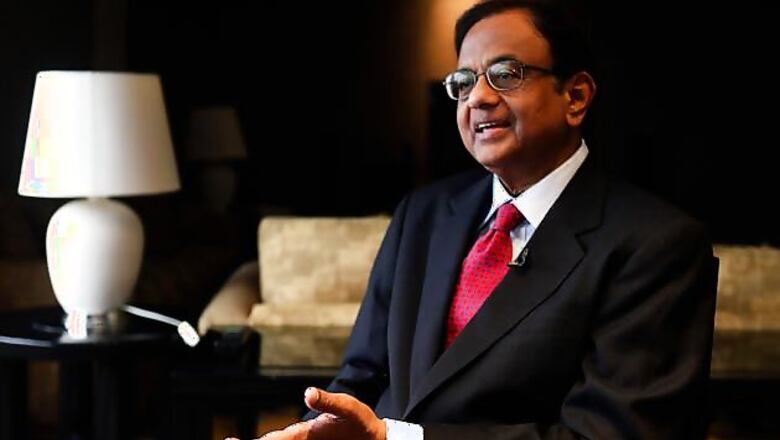
views
New Delhi: The government will ease restrictions for foreign institutional investors in central and corporate bonds in April to attract inflows and help fund a widening current account deficit, Finance Minister P Chidambaram said on Saturday.
Under the new rules, foreign investors can invest up to $25 billion in long-term government bonds, up from $15 billion. The cap on corporate bonds remains at the current level of $51 billion, but separate limits on different types of corporate debt have been removed.
"Effect from April 1, there will be two baskets - one of $25 billion for government securities and one $51 billion for all corporate bonds," Chidambaram told a conference.
Currently, foreign institutional investors can invest up to $25 billion in corporate infrastructure bonds, $20 billion in other listed corporate bonds, and $5 billon could be invested by other foreign investors including sovereign wealth funds, pension and insurance funds.
India restricts foreign access to its debt markets because of its reluctance to owe money to overseas investors, and has a complicated system of categories for debt as well as restrictions on which types of investors can bid for the debt.
But a record high current account deficit, which hit 5.4 per cent of the GDP in the quarter ending September, has prompted the government to take steps to increase capital inflows into country's debt and stock markets.
New Delhi will review the foreign investor cap on corporate bonds when 80 per cent of the limit is reached, Chidambaram said, adding it would help large investors plan their investment.
The government may further increase the cap on FIIs to invest in government bonds, depending on demand and macro-economic requirements, Chidambaram said.
"The annual enhancement of the government bond limit will remain within 5 per cent of the gross annual borrowing of the central government excluding buy backs," he said.
The government plans to borrow a gross 5.79 trillion rupees in 2013/14, excluding the 500 billion rupees of bonds it will sell to fund a buy back. Chidambaram also said the current corporate bond auction mechanism will be replaced with "on-tap system" that is used for infrastructure bonds.
India's current account gap is expected to touch an all-time high for the fiscal year that ends in March.




















Comments
0 comment